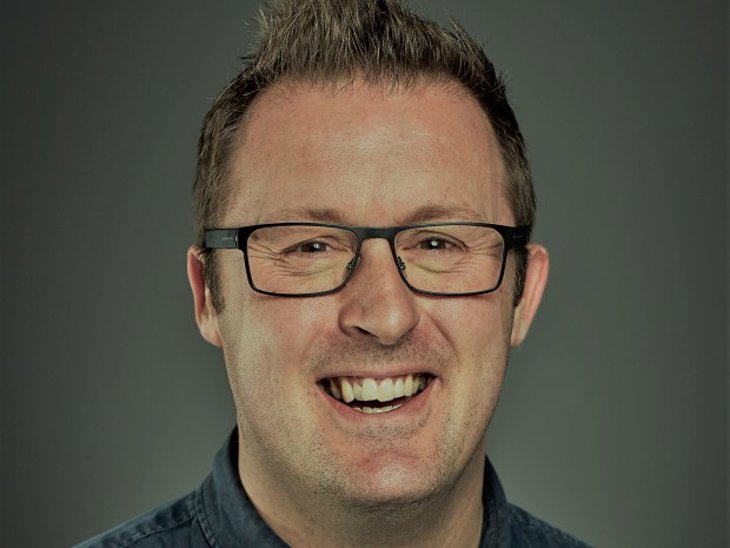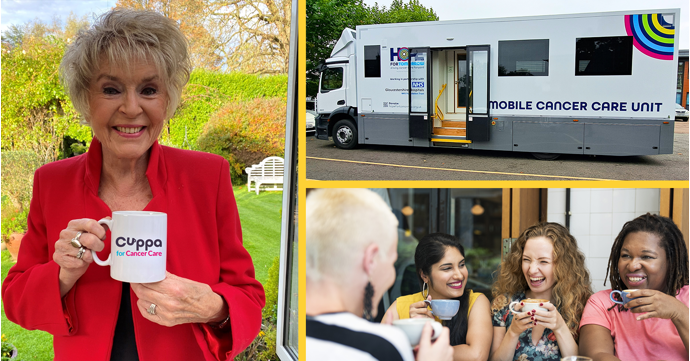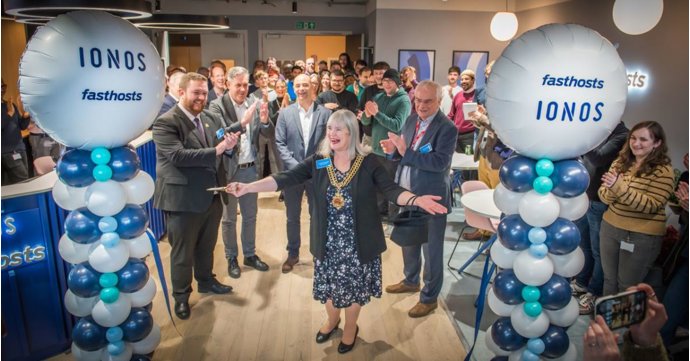Increasing diversity allows people to learn from others, explore topics and solutions more widely and deliver better solutions more quickly and effectively, according to Cheltenham-based Brave Human Capital Group.
SoGlos spoke to Brave’s managing director James Fleming about opening minds, thinking differently and challenging conventions.
About the expert – James Fleming, managing director of Brave Human Capital Group

James Fleming is the founder and managing director of Cheltenham-headquartered Brave Human Capital Group – a human resources company serving the county and beyond.
Brave builds bespoke HR and resourcing solutions for businesses, focusing on a company’s strengths, people and vision. It believes passionately that people are at the heart of a business and makes it a priority to help them perform to their full potential to make the business a success.
For more information, visit bravehcg.co.uk.
Why does diversity and inclusion matter?
That’s such a massive question that reaches into society and an individual’s belief system. From a personal perspective, it is vitally important that everyone in society has access to the same opportunities to progress, build a life and better themselves.
In a world that is so divided, equality and inclusivity regarding gender, sexual orientation, race, religion, or where you’re born, amongst other things, is more important than ever.
What are the benefits of a diverse and inclusive work force?
A few years ago I was given the opportunity to spend the day at Grey, a leading worldwide, London-based advertising agency, which relaunched the entire business strategy around inclusivity.
One of its top values was ‘collision’. By this it meant a diversity of thought, a diversity of experiences and perceptions. Grey felt this would enhance its creativity and ability to provide genuinely insightful solutions for its clients.
Looking at it coldly – which is difficult – you can also see the improved business performance as a result. Research from McKinsey shows clients with greater levels of diversity, especially at board level, are 28 per cent more likely to out-perform their competitors.
More than that though, the real benefit to society is doing the right thing. That’s the real business case for it.
How does a lack of diversity and inclusion influence a team?
Just building on from my answer above, with teams which are not diverse, you suffer from a lack of creativity as you’ll only have one perception or are more likely to have one set of shared experiences.
More diversity allows you to learn from others, explore topics and solutions more widely and deliver better solutions more effectively and quicker.
Have you come across companies who are leading lights in this area and what is it that they do so well?
Yes, there are lots of companies beginning to make big strides in this area.
As I mentioned above, Grey is doing extraordinary work in this area and has built its entire business model around breaking barriers and actively encouraging diverse thinking from all corners of the community.
Locally, I see some businesses also taking positive strides – Infrastar in Gloucester is doing a lot to promote mental health awareness. St James’ Place does amazing work on promoting equality of opportunity and its appointment of a head of inclusivity has put real emphasis on enhancing its culture and improving the diversity of its workforce and inclusivity of mindsets.
At Brave, we’re also doing excellent work. We’re beginning to focus on raising awareness about the importance of neurodiversity and our recruitment team is challenging recruitment perceptions with gender neutral adverts, nameless CVs and objective methods of assessments. There’s also a great job board called Evenfields that promotes roles to a diverse range of candidates that normal advertising would not reach.
Why are you so passionate about equality?
As a white, well-educated, 40-year-old man who’s benefited from bias over the years, this is a hard question to answer. I believe everyone should have access to the same opportunities I’ve had.
Being in HR, I’ve had the privilege of working with a number of exceptionally talented females (HR is a largely female dominated industry). I noticed many would leave the workforce after having children and this felt like such a missed opportunity and very unfair. I also thought businesses were missing out on a lot of talent leaving the workforce entirely.
At Brave we have job shares and part-time working to help us grow, bringing people back into the workforce who were otherwise not working because they couldn’t find the flexibility they needed.
How can companies embrace a more diverse and inclusive working arrangement? Are there stumbling blocks?
There are stumbling blocks. Flexible working arrangements cover a multitude of different things from part-time hours, to shift patterns, to location and working from home.
Companies can embrace this by looking at their working practices, what can be done from home, looking beyond 9am to 5pm working.
In order to make this work though, employers need to open their minds, think differently, challenge convention and be prepared to trust their team to do the right thing and not take advantage of the benefits flexibility offers.
Where does change come from in your experience – is it bottom up or top down? And in your experience, is it driven by anger and frustration or inspiration and vision of something better?
With every business, change starts at the top and needs to be role modelled at every level of the organisation. It needs to be reflected with recruitment practices, how you promote employees, how you appraise performance and recognise great work.
If it’s driven by anger it will only get you so far. In my view, if it’s driven by hope, like the Obama presidential campaign, it has greater longevity and likelihood of success.
For businesses wanting to put diversity and inclusion at the top of their agenda for 2023, where would you recommend they start?
Saying ‘recruitment’ is the easy answer, but this won’t cause genuine change. It might mask some cracks and improve practices, but it won’t really change anything if you don’t address the biases that exist within the team.
The place to start is tackling your own biases and those of the leadership team – some may be conscious, others may be unconscious. We all have them, so it’s not a judgemental statement.
Until these are addressed, appreciated and tackled, everything else will just be tactical and lack real staying power.
In an ideal world, what would be your dream scenario?
Well, the dream, the aspiration has to be equality of opportunity for all.
It’s easy to say, absurdly difficult to do and it requires continued commitment and effort from every person and every segment of society.
On a personal, tangible level, I would like to see people being kinder, more respectful of each other.
If you’re in politics – less divisive policies (like shipping refugees to Rwanda, which is terrible in my view). If you’re a business owner, look at how you act. If you’re on social media, think about what you post and ask if what you are saying is for the good of community or to generate a response.


















